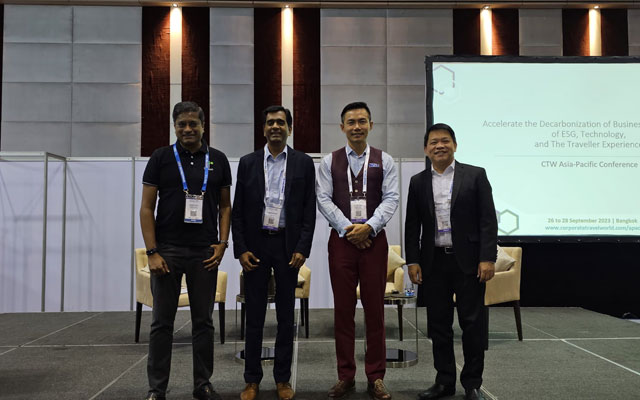
Being a significant contributor to carbon emissions, the business events industry also plays a crucial role in accelerating decarbonisation efforts, according to CTW Conference speakers at the recent IT&CMA 2023 in Bangkok.
Referring to Sustainable Travel International data, Manish Raj, head – strategy & business of Lithium Urban Technologies said tourism was responsible for about 11 per cent of the world’s GHG (greenhouse gases) emissions and is projected to almost double by 2050.

Srinivas Rao, head of global TMC engagement APAC, Amadeus, said that there is an urgency to address Environment, Social and Governance (ESG) issues, and reduce carbon emissions.
“Over the last two or three years, we can see the impact of climate change. It is impacting cities and countries. (People now) understand that this is impacting the world and unless corporates and individuals come together and find a solution, this will be very difficult to mitigate,” Rao said.
Fortunately, the pandemic has helped to change people’s mindsets, who are individually looking at how they can reduce their carbon emissions. In turn, companies have been pushed to change the way it can do business sustainably.
Daniel Chua, co-founder of MICEcarbon said: “Having been in the (meeting industry) business for a long time and having seen clients evolve, I think we all need to evolve along with them and lead the way in some cases.”
Rao shared that a recent Amadeus survey revealed that travellers now are increasingly asking for sustainable options like taking the train, or driving an electric vehicle. At the same time, travellers are also questioning the transparency around the sustainability policies that an organisation has.
“There’s a lot of conversation going on at the employee level,” he said. “We also understand that our customers are at different stages in their sustainability journies. So giving them one solution may not be the right fit. Instead, with multiple choices we can then choose which one is the right solution,” he said.
Internally, Amadeus has also taken steps to establish three strategic pillars. The first pillar is to transform the business, where Amadeus is aiming to be carbon neutral by 2025 instead of 2030. The second pillar was to provide customers with the necessary support to help them achieve their sustainability goals, while the final approach was to collaborate with other ESG companies and various industry partners to help achieve the goals.




















